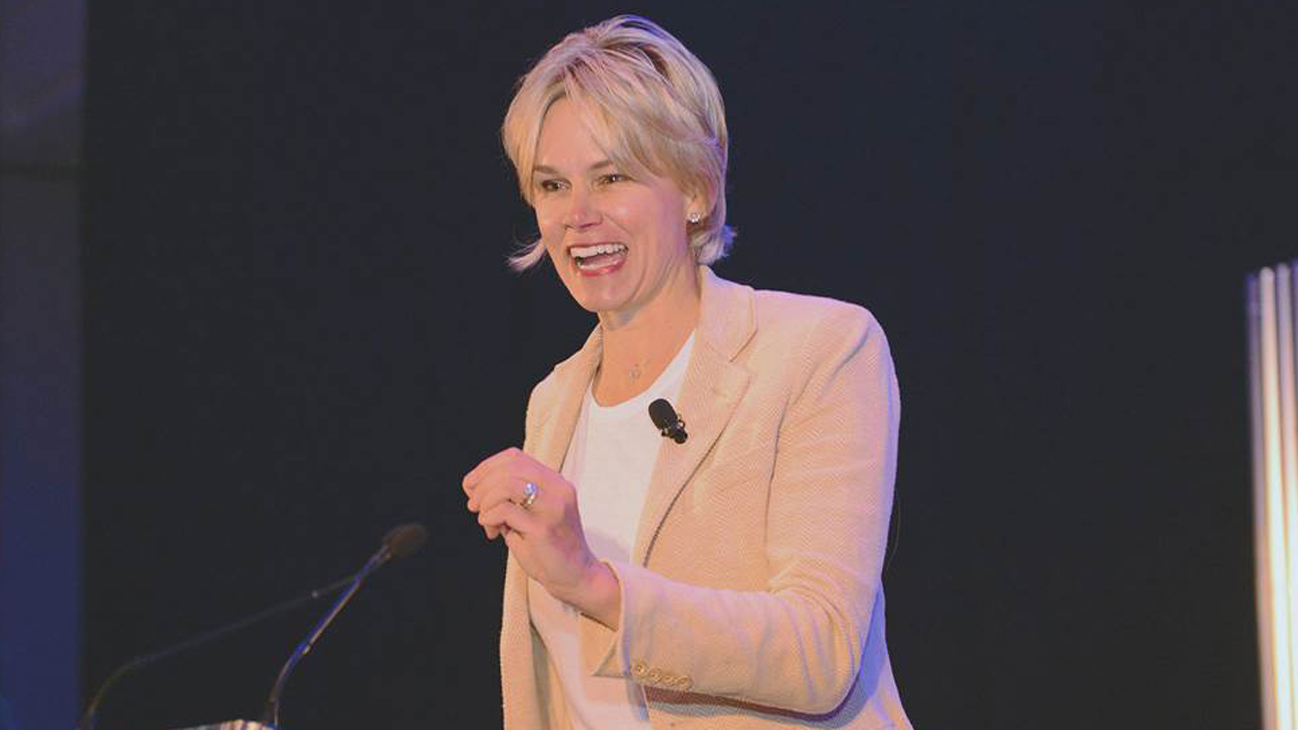Molly Fletcher is a trailblazer in every sense of the word. As president of client representation for sports and entertainment agency CSE, she spent two decades as one of the world’s only female sports agents. Hailed as the “female Jerry Maguire” by CNN, she recruited and represented hundreds of sport’s biggest names, including Hall of Fame pitcher John Smoltz, PGA TOUR golfer Matt Kuchar, broadcaster Erin Andrews, and basketball championship coaches Tom Izzo and Doc Rivers. Today, Molly shares her unconventional and unique techniques that made her one of the first female sports agents in the high-stakes, big ego world of professional sports and now a successful entrepreneur. Here, Molly shares her tips for negotiating when things get emotional:
Most people hate to negotiate, for a lot of reasons. That means most of us start from a place of emotion. When we don’t want to do something, or we’re afraid, we’re starting out at a disadvantage. And in my experience, that kind of starting point hurts our chances of making the best deal.
It’s easy for that emotion to snowball as we negotiate. I know because through negotiating more than $500 million in contracts and building lasting relationships, I’ve seen emotion try to sabotage deals and succeed.
The good news: I have tactics that work. Here are three favorites.
1. Commit to sticking with the facts.
I get frustrated when the other side refuses to negotiate. It’s a take it or leave it situation. I never deny the frustration or whatever emotion is going on. I work around it by focusing on facts.
Facts are the bedrock of negotiating. Collecting as much information as possible is part of Setting the Stage and Finding Common Ground (two key steps in the process that are detailed in my book, A Winner’s Guide to Negotiating: How Conversation Gets Deals Done). When emotion runs high, our home base are the facts we have gathered.
Don’t underestimate the power of facts to cut through emotion. Facts are our destination, and if we keep our eyes on where we are going, emotion is more likely to take a back seat.
2. Promise to not take it personally.
In negotiating, we become vulnerable to emotion because we are risking rejection. No one likes that. But we don’t have to take it personally.
It’s important to realize that while the outcome of the negotiation may mean a great deal to us, the results are separate from who we are. This distance is so important. The more that we make it about us, the more emotional we are likely to get and the less likely we are to reach a great result that works for both sides.
Here’s what works for me: The practice of gratitude. This helps me stay centered and keep my perspective and focus. It is a go-to tool when I realize I am taking things personally and need to dial back to the facts.
Gratitude forces us to shift our mindset. By pausing to be grateful for the little and the big things in life, we can find more mental space for the next action we need to take in negotiation. Some of my list of things I am grateful for are good health, faith, family, the Midwest values that I was raised in, my sense of humor, big brothers who treated me like a little brother when we were growing up, sports and all its emotions and lessons, my team at MFC, my speaking platform that allows me to create connections and improve lives… and my running shoes.
Gratitude as described above is more of a personal, private practice to help me keep moving forward, but the results are very outward. I know that I project true focus because gratitude helps me stay in the balance.
Gratitude has a counterintuitive place in negotiation. Authentic thankfulness can make a powerful connection to the other side. Telling someone that we are sincerely grateful that they listened, that they responded promptly, that they respect us—all this can make a personal connection.
3. Look from the upper deck with curiosity.
In a ballpark or stadium, the upper deck are the seats furthest away from the field of play. They are usually the cheapest seats and not ones that anyone would want first. The upper deck is where I go mentally to avoid getting emotional or deal with emotion that comes up in negotiating.
By moving to the upper deck, I have put on a new, wider lens on what is at stake. I can’t see as many details, but I can still see the big picture. It forces me to reframe the negotiation less personally and more factually. Call it the upper deck or quiet time, but it’s the space we need to get a different view of all the action so far, and process it to our greatest benefit.
Distance (mental or physical) is so important because we can examine all the tools at our disposal. Curiosity is such a big one. When the other side expresses resistance or hostility, and we respond with curiosity and openness, we move away from personalities and toward understanding the problem.
When we get defensive or experience strong emotion that threatens our ability to negotiate, go to your upper deck. Make the conscious shift to curiosity. You’ll be amazed how the lines of communication are strengthened.
Your Game Changer Takeaway
No matter how we feel about negotiating (or during it), we can minimize the risks of strong emotion to a positive outcome. Commit to stick with the facts, promise not to take it personally and get curious from your upper deck. These tactics will help you find more balance and keep your center when emotions get high in negotiating.

